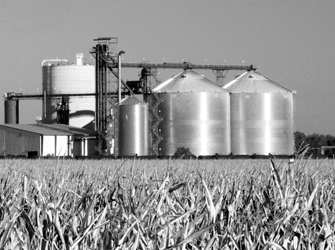
Landfill Gas/Biogas
Biomass
Biofuel | Alcohols, Ethanol
Biomass
Biofuel | Alcohols, Biobutanol from Diatom or Algae
(Solalgal Fuel)
Biomass
Biofuel | Pyrolysis Derived Fuels
Biomass
Biofuel | Biodiesel
Biomass
Biofuel | Greendiesel
Biomass
Biofuel | Vegetable Oil
Biomass
Biofuel | Syngas
Biomass
Biofuel | Solids
Biomass
Biofuel | Hydrocarbon Plants
and Biogasoline
Biomass
Energy | Waste-to-Energy (WtE)
Biomass
Microbial Fuel Cells (MFC)

Alcohol biofuels like ethanol are produced through the fermentation of sugars from high carbohydrate content plants such as corn, potato, beet, wheat or sugarcane. Other (more costly) processes can use as raw material wood product waste and fibrous grasses such as switchgrass that grow very quickly. Ethanol can be used as an additive to gasoline or it can be used in a majority ethanol mix such as “E-85” (ethanol 85%) in engines that have been appropriately modified.
Some concerns over the proliferation of “first generation” ethanol type biofuels include:
Food vs. Fuel:
With the world frequently experiencing food shortages and with many people around the world suffering from severe starvation, it is not wise to convert useful food resources into fuels if other alternatives are available. Much of the proliferation of ethanol has been a consequence of the agricultural industry lobby because a higher margin can be yielded on corn prices for example when global demand rises due to the expansion of fuel related end uses.
Conventional Oil Price Deflation:
The abundant use of biofuels has kept oil prices below where they would otherwise be. Some estimates (WSJ, March 2008) put the deflation at as much as 25%. The concern is that this is artificially inflating the use of conventional oil products as a consequence of the market pricing influence of biofuel availability.
Loss of biodiversity and deforestation:
With more demand for sugarcane and corn which is bred to be high in sugar content, fields will be cleared for this use from what would otherwise have been either natural forests of mature trees or agricultural systems of greater biodiversity.
Pollution:
The combustion of ethanol produces byproducts that are released into the atmosphere such as Formaldehyde and Acetaldehyde which have carcinogenic properties.
Water:
Crops that most easily produce the best performing biofuels require significant irrigation resources.
As a response to these and other issues, many new methods and products have evolved over the past decade in what are known as second, third, and fouth genearation biofuel technologies.


